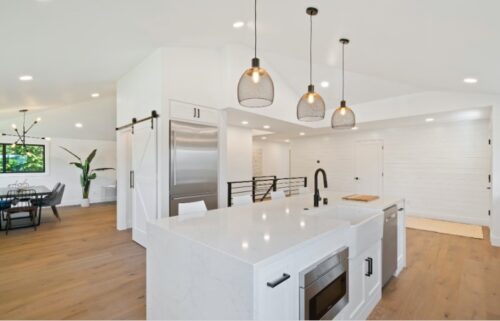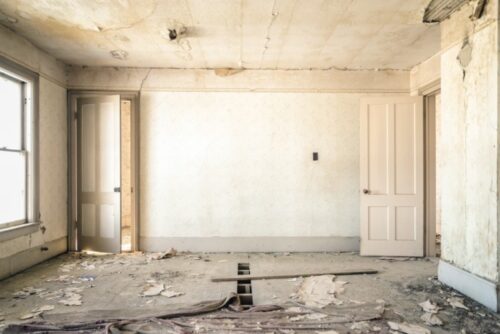Are you a homeowner or property enthusiast looking to spruce up your living space? Whether you’re planning to make changes to your property or just wondering what exactly sets maintenance and renovation apart, this blog post is for you. Understanding the key differences between maintenance and renovation is crucial for budgeting, planning, and ensuring your property remains in tip-top shape. In this article, we’ll break down the distinctions between these two terms, so you can make informed decisions for your property investments.

1. Nature of Work
When it comes to differentiating maintenance from renovation, the nature of the work involved is the most significant factor. Maintenance activities are routine tasks aimed at preserving the existing condition of your property. These tasks can include cleaning, painting, repairing minor damages, and more.
Essentially, maintenance keeps your property in good working order and prevents deterioration over time, and it includes removing any unnecessary items, as you would do when renovating.
In both cases, exploring various sized dumpsters to rent will help remove anything you don’t need anymore. Renovation, on the other hand, involves more extensive changes to your property. It typically includes structural modifications, major repairs, or complete overhauls of rooms or areas. Renovation projects often alter the functionality, appearance, or layout of a space, like remodeling a kitchen, or bathroom, or adding an extension to your home.
2. Timeframe
The timeframe for completing work on your property can significantly vary between maintenance and renovation projects. Maintenance tasks are generally short-term and recurring. They are part of your regular homeowner duties and can be completed in a matter of hours to a few days, depending on the scope of the task. Contrary, renovation projects are typically long-term endeavors. They involve extensive planning, design, and construction phases that can last weeks, months, or even longer, depending on the complexity of the project.
3. Cost
Maintenance costs are relatively predictable and usually lower than renovation costs. These expenses include the price of materials, labor, and routine service fees. They are essential for the ongoing upkeep of your property. Renovation costs can vary widely based on the scale of the project. They often involve significant investments in materials, labor, permits, and design. Renovations can be costly, but they can also add substantial value to your property when done right.
- Varied and Project-Specific: Renovation costs can vary significantly based on the scale and complexity of the project. A small kitchen upgrade will be much less expensive than a full house remodel.
- Substantial Initial Investment: Renovations often require a substantial upfront investment in materials, labor, design, and potential permits and regulatory compliance costs.
- Potential for Return on Investment: While renovations can be costly, they have the potential to add substantial value to your property. A well-executed renovation can increase your property’s market worth, offsetting some of the initial expenses.
4. Purpose
Understanding the purpose behind the work is essential in differentiating maintenance from renovation. Maintenance serves the purpose of preserving and protecting your property’s current condition.
It is a proactive approach to preventing issues and maintaining the property’s value. On the other hand, renovation aims to enhance, upgrade, or transform your property. The purpose of a renovation project is to make significant improvements in functionality, aesthetics, or both.
5. Impact on Property Value
While maintenance is essential for preserving your property’s value, it typically has a limited impact on increasing its market worth. Regular upkeep helps prevent depreciation, ensuring that your property doesn’t lose value due to neglect. It maintains your property at its current market rate. Renovation projects, when well-executed, can substantially increase your property’s market value. By modernizing, expanding, or enhancing your space, you’re likely to attract more buyers or renters willing to pay a premium for the improved features and aesthetics. Renovations can be considered investments in your property’s long-term value.
6. Regulatory Considerations
In most cases, maintenance activities do not require special permits or approvals. Cleaning, basic repairs, and routine servicing can be conducted without needing to navigate complex regulatory processes. Renovation projects often require permits and compliance with building codes and zoning regulations. Depending on the scale and nature of the renovation, you may need approvals from local authorities. Ignoring these requirements can lead to legal complications and additional costs.

Understanding the difference between maintenance and renovation is vital for anyone involved in property management or homeownership. These distinctions, from the nature of work and timeframe to costs and impact on property value, help you make informed decisions about how to care for and improve your property. Maintenance is about preserving your property’s existing condition, while renovation involves transformative changes that can significantly enhance its value. Consider your goals, budget, and regulatory requirements when deciding between maintenance and renovation to ensure your property remains both comfortable and a sound investment in the long run.





